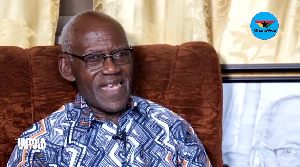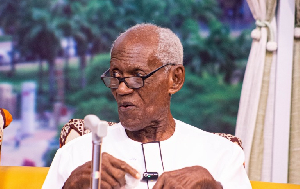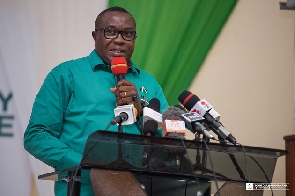In all of the Ghanaian languages that I am familiar with units of currency have no plural forms. I have good reasons to believe that this is true also of the Ghanaian languages that I am not so familiar with. In the days of the British colonial rule when Ghana was then known as the Gold Coast the currency imposed on the country by Great Britain was the British West African Pound. This currency was simply referred to as the Pound in the then Gold Coast but the word Pound was invariably corrupted as “Pon” or “pau” in the local dialects. During that era of the country’s history even though the words “pon” or “pau” were assumed derivatives of the English word Pound the derivatives themselves were not pluralized in the characteristic English fashion by adding an “s” at the end of the word when said in a Ghanaian language. For example, Ten pounds would be ‘pon du’ in Twi, ‘pon goma’ in Dagbani and ‘pau nyogma’ in Ga. Obviously no “s” is added at the end of the word ‘pon’ or ‘pau’ in each of the examples given.
The art of non-pluralizing the unit of currency in local languages appears to be a cultural phenomenon across a whole spectrum of countries along the west coast of Africa from the Gambia through Nigeria, and, may be, Cameroun and beyond.
Plural word formations exist in Ghanaian languages and the rules for such formations, the nuances of which I am not competent enough to delve into, are unique to the different vernaculars. What, undoubtedly, does not apply in any of the Ghanaian vernaculars is the English rule of adding an “s” to a word to get its plural form. Let us consider a Ghanaian word and see how it would play into the English Language if we should decide to teach the Englishman about it. Take the word “prekese”. for example; and imagine for a moment a Ghanaian teacher standing in front of a group of British students with prekese in hand and goes like this: “This is a medicinal plant seed from West Africa; it is called prekese in the Twi language; prekese is the singular form but if there are more than one they are collectively referred to as mprekese.” Note that although the lesson is supposed to be in English the plural form would be the Twi plural form mprekese and not prekeses. This is how one would expect a Ghanaian teacher to introduce a Ghanaian word and its plural form to the English person. We cannot say, therefore, that because a conversation is held in English a borrowed Ghanaian word will have to obey the English plural word formation rules. That is clearly linguistically outrageous!
The word Cedi which is the Ghanaian unit of currency is derived from the Twi word Sidee (pronounced si-di-er) meaning cowry shell. Although I am no scholar of linguistics my gut instinct tells me that pluralizing a derivative of a Ghanaian word the way and manner it is done in the English language is not only inappropriate but also an affront to the Ghanaian culture. In neighboring Nigeria, where the unit of the currency, Naira, is of local origin the people of that country saw through the anomaly of adding an “s” to the unit to pluralize it the English way. Hence two or more unit bills of that country’s currency is still referred to as Naira (as in 100 Naira) and not Nairas. It is hoped that the Ghana government would lend this discourse some thought and quit pluralizing the cedi by dropping the letter ‘s’ whenever the word is used in a plural context so that going forward, we may, for example write or say 50 cedi as opposed to 50 cedis. This proposal, if agreeable, does not have to be effected immediately or too soon but may, at least, be noted for a future currency change exercise in which case costing and cost effectiveness considerations would be inconsequential.
QUALIFYING THE CEDI
Due to economic and other factors countries all over the world do change their currencies from time to time by giving it a new look. These changes sometimes reflected a devaluation or otherwise of the currency. At other times they were merely of aesthetic or historical value. Irrespective of the reason for the change, however, a country normally retains the name of its currency. Taking the British pound as example; this currency has endured varying purchasing power and has undergone one transformation or the other over the centuries but it is still the same old almighty pound. Though the same can be said of the dollar that pertains to the United States of America, that currency needs to be qualified by the adjective US (thus US Dollar) in order to differentiate it from the dollars used by the over twenty other countries around the world. Similarly, those other countries that use dollar as currency also need to qualify theirs to make it distinct from all the others. Hence there is the Canadian dollar, Australian dollar, Liberian dollar, Zimbabwean dollar etc.
Just as is done in other countries there were times that Ghana felt the need to change its currency too. Interestingly, whenever a new version of the Ghanaian currency (the cedi) makes its debut on the market, because it runs concurrently as legal tender with the already existing one for a period before the old is completely withdrawn from circulation, Ghanaians have adopted a habit of showing the difference by using appropriate adjectives to qualify the newly released currency. In the latest currency change exercise the newly introduced cedi was preceded by the adjective Ghana; thus Ghana cedi (often written GhC). This, of course, made some sense when both the old currency and the new were in circulation. However since the old had been completely withdrawn from circulation leaving only the new, the continued reference to it as Ghana cedi has become an absurdity. In the first place there is no longer the need to show a difference by tagging on the adjective and, secondly, Ghana is the only country in the world that uses the cedi as its currency. There is nothing like Nigerian cedi, Turkish cedi or Croatian cedi to warrant qualifying the cedi as Ghana cedi. Cedi is cedi and so must it remain!
Written by Mike Olongo, Columbus, Ohio, USA; //campolongo2011@hotmail.com












